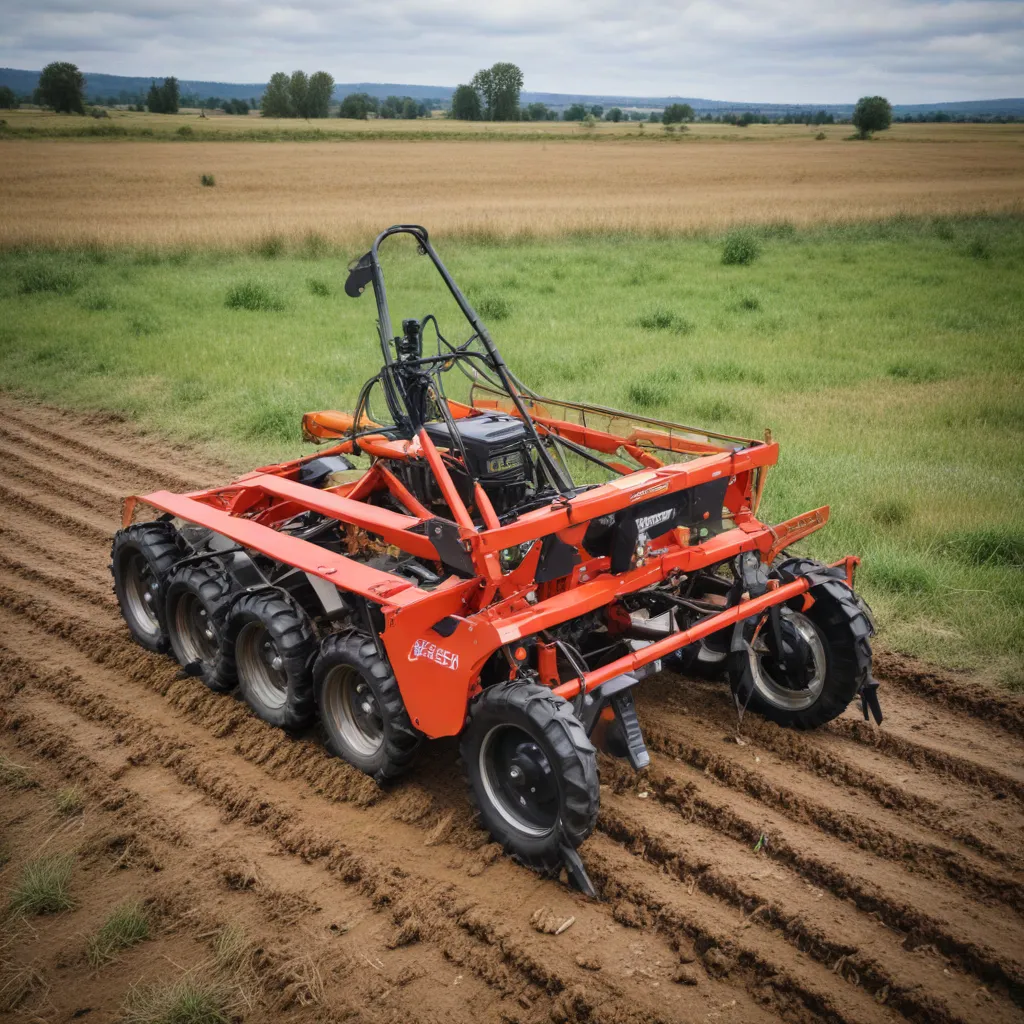
More Machines – Open Source Keyline Plow | Open Source Ecology
The Open Source Keyline Plow from Open Source Ecology is a fascinating example of how open-source principles and collaborative engineering can revolutionize sustainable farming practices. This innovative tool is designed to address the pressing challenges of soil conservation, water management, and regenerative agriculture – all while empowering a global community to take charge of their food production.
Keyline Plow Design
At the heart of the Open Source Keyline Plow is its keyline patterning functionality. Unlike traditional plows that turn the soil over, this specialized implement creates a series of narrow, deep ruts that allow water to easily penetrate the soil. This keyline plowing technique not only aids in preventing soil erosion but also significantly increases the soil’s water storage capacity – a critical factor in the face of increasingly unpredictable weather patterns.
The plow’s key features include a robust 3″x6″x1/4″ tube welded to a 12″x48″x1/2″ plate that attaches to the LifeTrac tractor’s quick-attach system. Two eye plates on the tube align with the eye plates on the quick-attach plate, ensuring a secure and efficient connection. The heart of the design lies in the two shank modules – 1″x3″ blades that extend 16″ in length and 6″ into the ground. These shanks are made of 1/2″ angle iron with a piece of rebar welded down the center, allowing them to effortlessly slice through compacted soil and push it to the sides, shattering the compaction without turning the soil over.
The sustainable engineering behind the Open Source Keyline Plow is a testament to the principles of Open Source Ecology. By leveraging readily available materials, such as scrap metal and CNC-machined components, the designers have created a highly functional and cost-effective tool that can be easily replicated by anyone with access to basic fabrication tools.
Open Source Ecology
Open Source Ecology is a network of farmers, engineers, and community members dedicated to the development of the Global Village Construction Set – a modular, open-source, low-cost platform that can be used to build the basic infrastructure to support a sustainable human civilization. The Open Source Keyline Plow is just one of the many innovative machines that have emerged from this collaborative effort.
The mission of Open Source Ecology is to “create an open source industrial base that allows for the easy, DIY fabrication of the 50 different industrial machines that it takes to build a small, sustainable civilization with modern comforts.” By sharing their designs, schematics, and fabrication instructions openly, they empower individuals and communities around the world to take control of their food production, energy, and infrastructure.
This collaborative approach has led to a rich tapestry of community contributions and feedback. As users experiment with the Open Source Keyline Plow and share their experiences, the design is continuously refined and improved, ensuring that it remains a highly effective and accessible tool for regenerative agriculture.
Farming Applications
The Open Source Keyline Plow’s primary function is to address the pressing issues of soil conservation and water management. By creating the keyline pattern in the soil, the plow helps to slow the flow of water, allowing it to infiltrate deeply and recharge groundwater reserves. This, in turn, reduces the risk of soil erosion and improves the overall soil health.
But the benefits of the Open Source Keyline Plow extend far beyond just soil and water management. When employed as part of a holistic regenerative agriculture approach, this tool can play a crucial role in enhancing crop yields and overall farm productivity.
By shattering soil compaction without turning the soil over, the keyline plow creates an ideal environment for plant roots to penetrate deeper and access more nutrients and moisture. This, combined with the increased water-holding capacity of the soil, can lead to more robust, healthy plant growth and higher-quality, estate-grown produce.
Fabrication and Assembly
One of the key strengths of the Open Source Keyline Plow is its accessibility and ease of fabrication. The design utilizes readily available materials, including 3D-printed components and CNC-machined parts, making it a highly replicable and cost-effective solution.
The bill of materials for the plow is meticulously documented, allowing anyone with basic fabrication skills to source the necessary components and assemble the tool themselves. This not only reduces the financial barrier to entry but also empowers individuals and communities to take ownership of their farming equipment and customize it to their specific needs.
Community Engagement
The Open Source Keyline Plow is more than just a piece of farming equipment – it’s a testament to the power of collaboration and knowledge-sharing. By making the design and fabrication instructions freely available, Open Source Ecology has fostered a vibrant community of permaculturists, engineers, and sustainable agriculture enthusiasts who contribute to the ongoing development and improvement of the tool.
Through detailed online tutorials, workshops, and community forums, the Open Source Ecology team actively engages with users, providing guidance and support for those interested in replicating the keyline plow. This collaborative approach not only ensures continuous refinement of the design but also cultivates a sense of ownership and empowerment among the broader community.
As more individuals and organizations around the world adopt the Open Source Keyline Plow and share their experiences, the potential for this tool to transform the landscape of sustainable agriculture only continues to grow. By harnessing the power of open-source principles and community collaboration, the Open Source Keyline Plow represents a promising step towards a more resilient, regenerative, and equitable food system.
For more information on the Open Source Keyline Plow and other innovative machines from Open Source Ecology, visit their website at www.opensourceecology.org. And to learn more about how the Wine Garden Inn is leveraging sustainable farming practices and estate-grown produce in our culinary offerings, be sure to check out our other articles.
